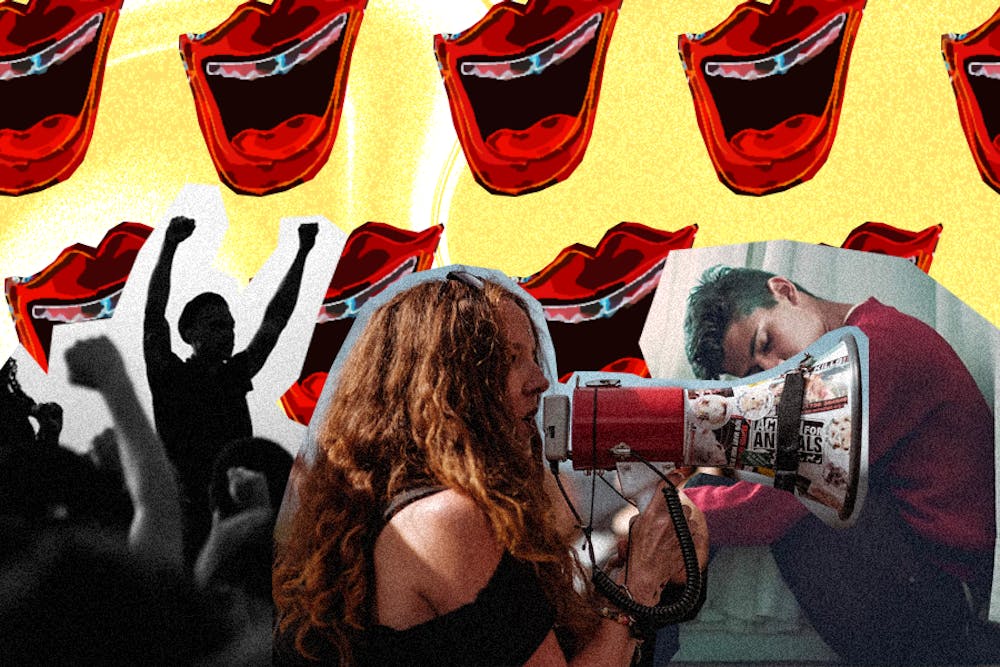Four minutes left in the episode—just 240 seconds for a five–year–long tale of deceit, love, and fame to unfold. In the time it took to microwave Kraft mac–and–cheese, the main character would have to decide whether or not to reveal an earth–shattering secret that would change the course of her and her family's life. Season 4 Episode 9 of Hannah Montana had left me in shambles.
This dramatic reaction could be chalked up to my seven–year–old self’s juvenile taste, but the emotional impact that sitcoms have had on me continues into my young adulthood. I’ve found that it's often the silliest shows that tend to elicit the most heartbreaking responses—and this is no coincidence. Viewers need to create a connection to television characters to feel the full effects of a their emotional distress.
Where situational comedies succeed over dramas is in their ability to highlight characters’ sense of humor and little quirks, allowing us to form a bond with a fictional person. As we're taken along the ride through their best times or light–hearted mishaps, the times when political or mental issues are introduced feel more unexpected and tragic.
A recent example of a series that’ll have you tearing up from laughter in one moment and from sorrow in the next is the E4 comedy Derry Girls. It’s a show that follows four young Northern Irish teenage girls and one wee British fella through the turbulent times of The Troubles—the decades of political unrest over the independence of Northern Ireland from the United Kingdom.
The setting is cause for us to believe that this is a drama centered around the surrounding conflict. However, between the plot lines of evading a polar bear to go to a concert and bringing "drug scones" to their uncle’s funeral, it's undeniably a comedy. And behind every setback are extremely well–developed characters that feel so familiar, it's as though you already know them.
The character Clare is that overly anxious friend you had to talk off the ledge after they got a B in English. Michelle is the troublemaker that you always contested, but look back on as the instigator of your greatest memories. The central family, the Quinns, is the family that can’t make it through a single meal without yelling.
At the same time, the show’s creator Lisa McGee doesn't shy away from discussing the darker aspects of being a teenager during this era. So when we witness the friends and families we know and love struggle with the moral conflicts of the Good Friday Agreement or grieve the premature deaths of loved ones, it hurts in a way we never anticipated from a comedy.
Even shows with less obvious political undertones still manage to be tragic at times, with popular series such as Community and The Office proving this to be true.
The show Community, which aired for six seasons and still ambiguously awaits a movie, can be described as nothing short of pure chaos. It's a show that aired the quote “If God were edible, not that I’m Catholic, but if it were cool to eat God he’d be a chicken finger” and also managed to address serious mental trauma and emotional breakdowns. In season two episode 11, the medium switches from live–action to various forms of animation as protagonist Abed Nadir struggles to find the true meaning of Christmas.
As the episode unfolds, what seemed to be a playful holiday special reveals itself as a representation of Abed’s mental distress, where he confuses the lines between fiction and reality while trying to cope with family trauma and abandonment.
Even as the sitcom contains storylines such as school–wide paintball warfare and child ninjas, at the heart of the plot, the seven protagonists come together because they had all hit rock bottom. Whether it was getting fired over a fake degree, losing a football scholarship due to an injury, or an all–consuming Adderall addiction, each character came to rely on one another when they needed a support system.
Often some of the greatest TV premises come from a group of people with nothing in common, finding each other at very low points in their lives to form what is known as a “found family.” NBC’s hit The Office is a prime example of this trope as it follows an office staff full of people who are completely dissatisfied with their lives. Over nine seasons, we watch these coworkers go through heartbreak, deal with rejection, and have the realization that they're not even close to where they hoped to be in life. The Office is in no way advertised as a drama, but the whole point of the show is that it's about normal people—people we may already know in our own lives—overcoming tragically common obstacles we're all too familiar with.
Through every laugh we share and conflict we overcome, comedy series produce more than just characters—but people we grow to love. So while many dramas pull the audience in through melancholic scores and minute–long shots of teary–eyed gazes, sitcoms are proof that what can give us best laughs and smiles can also hurt the most.







